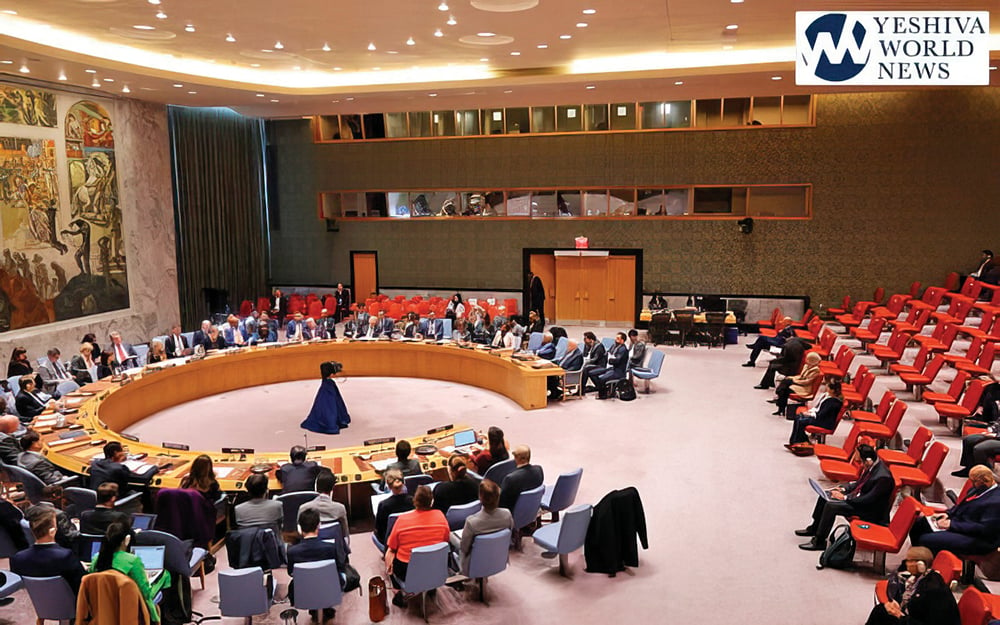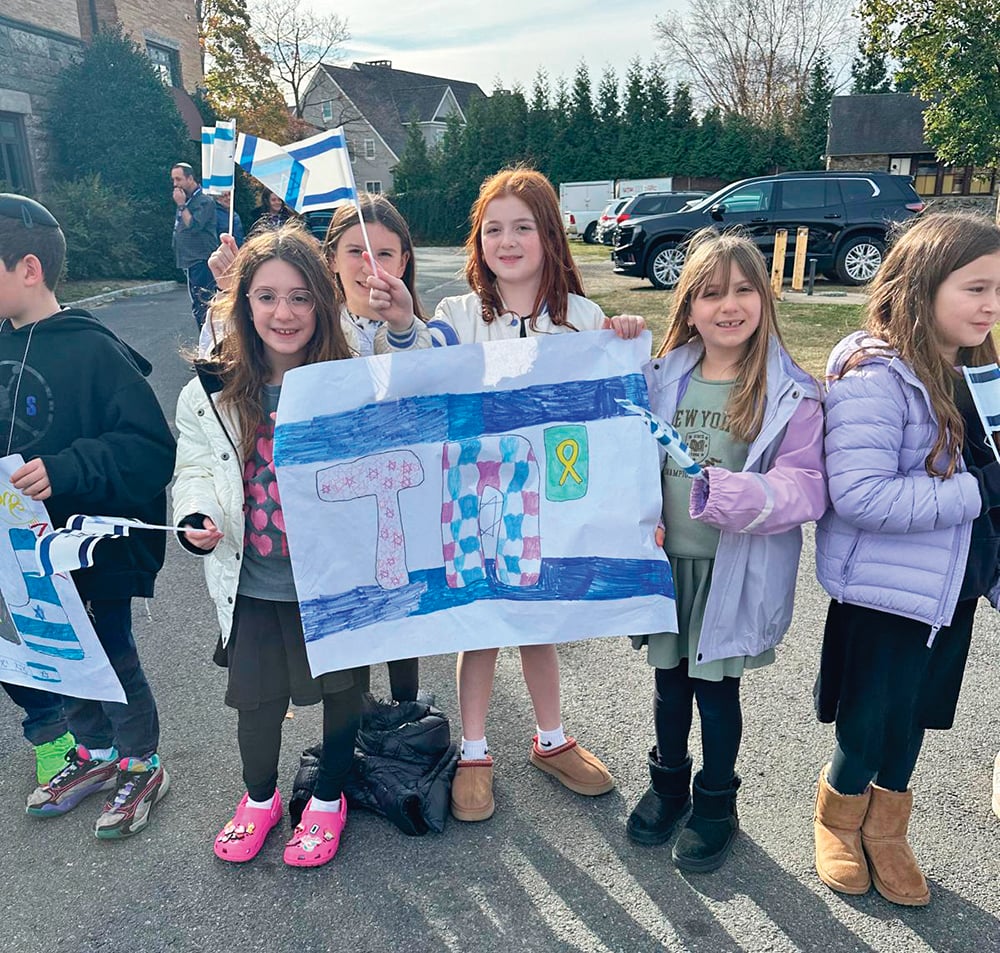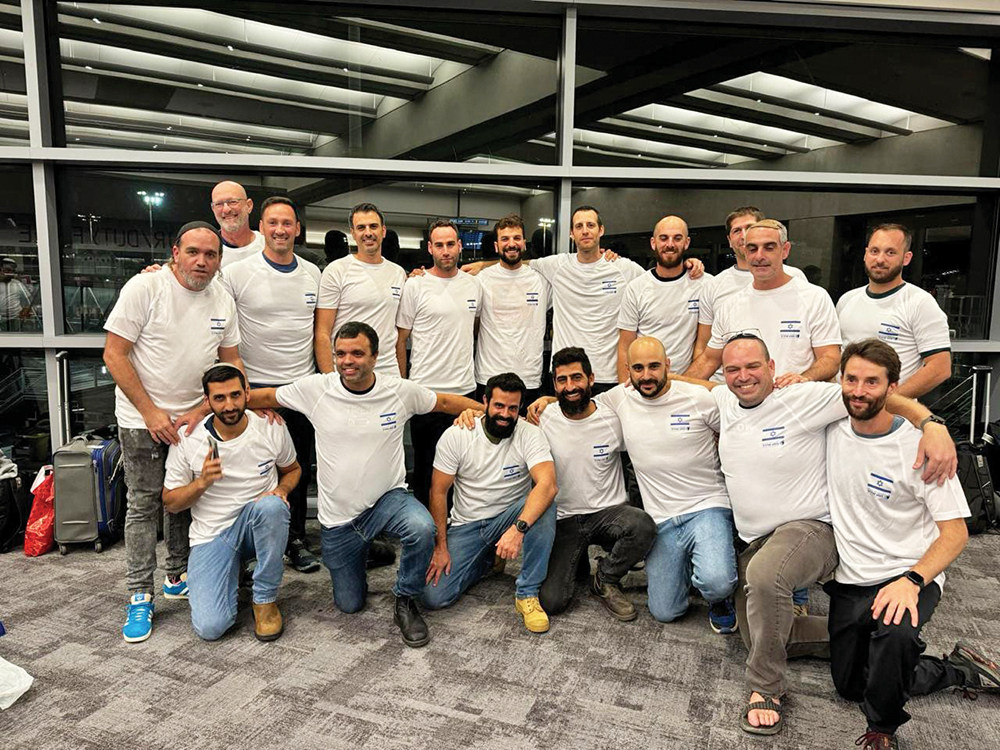Last year, I took my family to Florida for a winter vacation. During a Shabbos walk, we met up with a man with jet skis in his driveway. I told the man that if it weren’t Shabbos, my son and I would love to try them out! We schmoozed a little, telling him we’re from New Jersey. He said something interesting: “I see you people come from the New York area in the winter to get a little sun, and then you go back where it’s freezing. When you retire, you come back to stay. Why wait? Why not move down and have a great time now?”
I thought his question was so telling. From his perspective, life is about having a good time. Why work and freeze now, when sun and fun are available to you? But there’s a reason why I’m not moving to Florida now. I’m here to teach Torah. That’s my purpose in life. Jet skiing is enjoyable on occasion, but that’s not what I’m here for.
This Shabbos we read Parshas Zachor. The Sfas Emes says that the word zachor, remember, used here in the context of remembering what Amalek did to you, is also used for the mitzvah of Shabbos: “Zachor es yom haShabbos, Remember the day of Shabbos.” We thus can make the connection that by observing Shabbos, we prevent ourselves from falling for the false ideology of Amalek, a nation which lives by the motto of waging war against Hashem and living life as they wish, without conscience.
The word “Amalek” consists of the word “amal” plus the letter “kuf.” Amal means toil, and kuf stands for sheker, falsehood (kuf being the middle letter of sheker). Amalek is telling the Jewish nation, “You are working so hard for Torah and mitzvos for nothing. You are wasting time during which you could be enjoying yourselves, especially when you exert yourselves in Torah study.”
Shabbos is the antithesis of Amalek. Shabbos is a day when we remember our true purpose in this world. As the Mishna says, this world is just a corridor that leads us to the next world. Shabbos is considered the day the world was perfected, and therefore is described as 1/60th—a taste—of olam haba, the next world. As we prepare each week to get ready for Shabbos, we are investing in our olam haba. We are living today in preparation for the perfection of Shabbos tomorrow.
The Gemara says that the reading of Parshas Zachor must precede Purim, as we learn from the words in the Megillah, “These days shall be remembered and performed.” Remembering Amalek must precede the task of removing Amalek. Therefore, we read Parshas Zachor on the Shabbos prior to Purim to recall the evil plan of Amalek. Then, on Purim, we read about the annihilation of Amalek.
Purim is a day that goes beyond remembering the danger of Amalek. Through the performance of the mitzvos of the day, we are burning out Amalek’s effect on the world. Rav Avraham Grodzensky (the last Mashgiach of Slabodka Yeshiva) explains specifically that the Purim seuda, meal, is the fulfillment of the eradication of Amalek.
The festive meal on Purim is a time of great happiness, including eating and drinking. Amalek’s ideology is to eat, drink and be merry, for tomorrow we will die. On the other hand, our eating and drinking at the Purim meal celebrates the Jews’ purpose in life of worshiping Hashem. When we’re here to serve Hashem, then our eating and drinking and merriment on Purim are also to serve Hashem. This is a destruction of Amalek’s doctrine of living life for the pleasure of the moment.
There is a deeper dimension to how the Purim meal actually destroys Amalek. The defeat of Haman was only a partial victory, as Amalek was not destroyed entirely, and that nation’s ideology is still vibrant. On the day of Purim, we feel the future … in the present. The Purim meal is a present-day celebration of the ultimate future demise of Amalek and its false beliefs. This is the epitome of the eradication of the ideology of Amalek, which lives just for the present.
May we see the ultimate day of the future with the coming of Moshiach and rebuilding of the Beis Hamikdash, speedily in our days.
Wishing everyone a happy Purim!
Rabbi Baruch Bodenheim is the associate rosh yeshiva of Passaic Torah Institute (PTI)/Yeshiva Ner Boruch, where he leads a multi-level Gemara learning program. PTI has attracted adult Jews of all ages from all over northern New Jersey for its learning programs. Fees are not charged, but contributions are always welcome. Rabbi Bodenheim can be reached at [email protected]. For more info about PTI and its Torah classes, visit www.pti.shulcloud.com.












